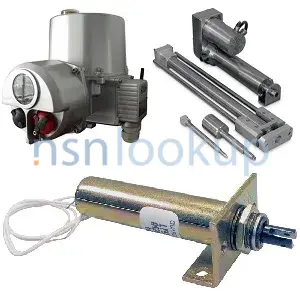Solid State Flasher
Item Name Code (INC) 36776
 |
An item designed to complete, interrupt or change the connections in one or more electrical lighting circuits in accordance with a predetermined time cycle. It is actuated by means of an arrangement of semiconductors and/or passive circuit devices. Excludes CONTROL, DIRECTIONAL SIGNAL LIGHT, AUTOMOTIVE and SWITCH THERMOSTATIC. See also FLASHER, THERMAL.
 Additional Information for Solid State Flasher
Additional Information for Solid State Flasher
Solid State Flashers are electronic devices used to control the flashing or blinking of lights or indicators. They are part of the supply class Relays And Solenoids in the supply group Electrical And Electronic Equipment Components.
Solid State Flashers are different from traditional mechanical flashers, as they use solid-state components such as transistors and integrated circuits to control the timing and frequency of the flashing. They are more reliable and durable compared to mechanical flashers, as they have no moving parts that can wear out or fail.
These flashers are commonly used in automotive applications, such as turn signals, hazard lights, and emergency vehicle lighting. They can also be found in industrial equipment, traffic signals, and other applications where flashing lights are required.
Solid State Flashers typically have input and output terminals for connecting to the power source and the lights to be controlled. They often have adjustable settings for controlling the flash rate and pattern. Some models may also include additional features such as built-in diagnostics or synchronization capabilities.
When selecting a Solid State Flasher, it is important to consider the voltage and current requirements of the lights to be controlled, as well as the desired flash rate and pattern. It is also important to ensure compatibility with the electrical system and any other control devices that may be used.
Overall, Solid State Flashers provide a reliable and efficient solution for controlling the flashing of lights in various applications.
 Related Item Names for INC 36776 Solid State Flasher
Related Item Names for INC 36776 Solid State Flasher
 NATO Stock Numbers with Item Name 36776 Solid State Flasher Page 2 of 2
NATO Stock Numbers with Item Name 36776 Solid State Flasher Page 2 of 2
- 123926699
- 4DN009492-101
- RNCC: 3 | RNVC: 2
- 629901
- RNCC: 5 | RNVC: 2
- 4DN009492-101
- RNCC: 5 | RNVC: 2
- 121697410
- VG95211-ML-121697410
- RNCC: 2 | RNVC: 2
- 773-266-00
- RNCC: 3 | RNVC: 2
- 3146
- RNCC: 5 | RNVC: 2
- 218989162
- 81-03-069-08
- RNCC: 3 | RNVC: 2
- 375219587
- KDS6210-4001
- RNCC: 2 | RNVC: 1
- F60000978
- RNCC: 3 | RNVC: 2
- F60000978
- RNCC: 5 | RNVC: 2
- 123172610
- 4DB003425-04
- RNCC: 3 | RNVC: 2
- 003425-04
- RNCC: 5 | RNVC: 2
- 4DB003425-04
- RNCC: 5 | RNVC: 2
- 003425-04
- RNCC: 5 | RNVC: 2
- 4DB 003 425-04
- RNCC: 5 | RNVC: 9
- 270541813
- FLS /41061
- RNCC: 2 | RNVC: 1
- 123346865
- NO PRIMARY REF 12-334-6865
- RNCC: 3 | RNVC: 2
- 060316
- RNCC: 5 | RNVC: 9
- 6031-6
- RNCC: 5 | RNVC: 9
- 123305171
- 4DM004356-02
- RNCC: 3 | RNVC: 2
- 004356-02
- RNCC: 5 | RNVC: 2
- 4DM 004 356-02
- RNCC: 5 | RNVC: 9
- 004356-02
- RNCC: 5 | RNVC: 9
- 4DM004356-02
- RNCC: 5 | RNVC: 9
- 218678136
- 70-3-018-04
- RNCC: 3 | RNVC: 2
- 6210-0089
- RNCC: 6 | RNVC: 9
- 190040139
- 20-296
- RNCC: 3 | RNVC: 2
- RTW30-10SEG24VCA
- RNCC: 3 | RNVC: 2